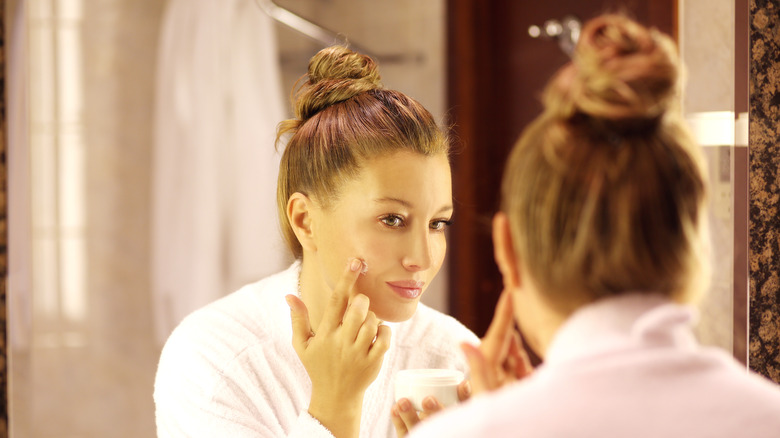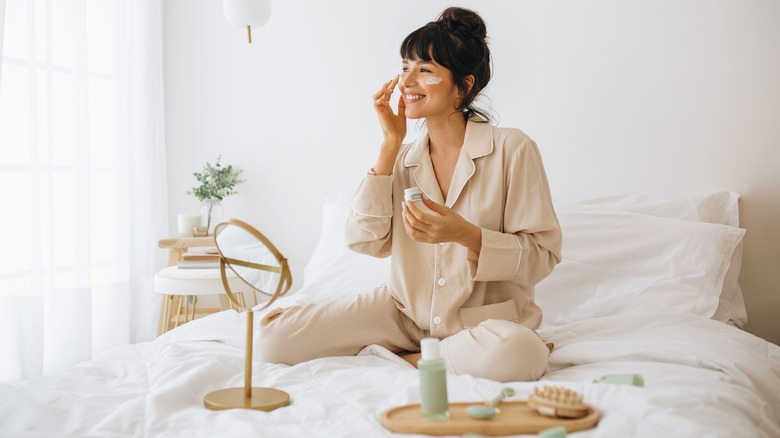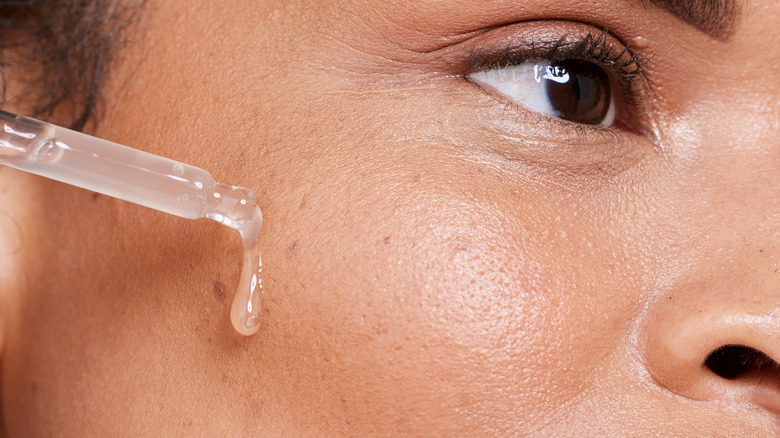Why You Should Apply Your Retinol Before Bed
Retinol has come a long way from being an ingredient that was only available at your dermatologist's office to a superstar component found in thousands of skincare products on the market. It's one of the most sought-after ingredients today, considering how it's marketed to bring back your youthful glow and reverse some of the most obvious signs of aging (and it does). Interestingly, despite the buzz around it, not many know what this supposed skincare hero exactly is, how it works, and how to use it properly.
To the uninitiated, retinol comes from vitamin A. Just as vitamin C is almost synonymous with ascorbic acid, retinol is a form of vitamin A, and it's known to speed up the process of skin cell renewal, resulting in clearer and brighter skin. "From a skin perspective, retinoids work at a deep cellular level, where they help to boost collagen and elastin production, reduce cellular aging and pore congestion, and regulate sebum production," skin health specialist Dr. Anita Sturnham explained to Harper's Bazaar. "Vitamin A cannot be made by the body and therefore needs to be supplied through our diet and by feeding our skin topically, through skincare."
In short, retinol is pretty much a genie in a bottle, but reaping its benefits is not as simple as spreading a great retinol serum all over your face. There are rules when it comes to retinol's use, starting with the time you apply it. Apparently, retinol should only be applied at night.
Retinol can lose efficacy with sun exposure
People rave about retinol because of its ability to bring out your youthful glow and reduce the appearance of fine lines, wrinkles, and dark spots, but you can only enjoy these results if you apply the wonder ingredient the right way. Experts recommend applying retinol only at night, as it can break down and be less effective when exposed to sunlight.
"Retinol makes your skin more sensitive to UV rays and sunlight decreases the efficacy of the product," NYC-based dermatologist Dr. Whitney Bowe explained to Vogue, while dermatologist Dr. Francesca Fusco noted that the ingredient "should not be used during seasons or vacations when individuals will be spending extended time in direct sunlight." What's more, since retinol accelerates the turnover of skin cells, putting it on may cause thinning of the outermost layer of your skin, making you more susceptible to sun damage.
But if you insist on wearing retinol in the daytime, it's recommended that you pull all the stops to ensure that your skin is well-protected. "Wear protective clothing like hats and long sleeves, stay in the shade whenever possible, and use sunscreen with SPF 30 or higher," board-certified dermatologist Dr. Stacy Chimento shared with Real Simple. "Also, make sure to reapply sunscreen every two hours. If you are suffering from sunburns, I would pause the use of retinol until about a week after increased sun exposure."
Other retinol application tips
Since retinol is an active product, experts advised against using it with other AHAs and BHAs, as doing so can only harm your skin barrier. Retinol is potent enough on its own, so you can forego most of your skincare routine steps when you're applying it. Dr. Ewoma, the founder of Skndoctor, told Glamour that mixing it with other active serums is a big no-no. "Don't do a pick and mix on your face by putting a bit of glycolic acid and a bit of vitamin C and a bit of retinol all in one," she advised. "That's the quickest way to burn your face."
If you must combine it with other skincare products, only do it with those that can help the retinol do its job well, like moisturizing ingredients. There's no overstating how important moisturizers are when using retinol, since the latter has the tendency to exacerbate dryness. Aside from hydrating yourself, it's recommended that you supplement it with other moisturizing products. "Make sure to moisturize; humectant ingredients like hyaluronic acid can draw and hold water molecules to the surface layers of your skin, while oil-based emollient ingredients help seal in moisture," Dr. David Lortscher, board-certified dermatologist, explained to InStyle.


